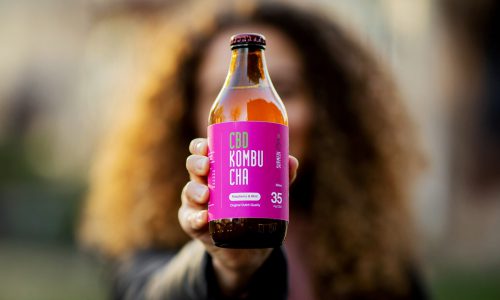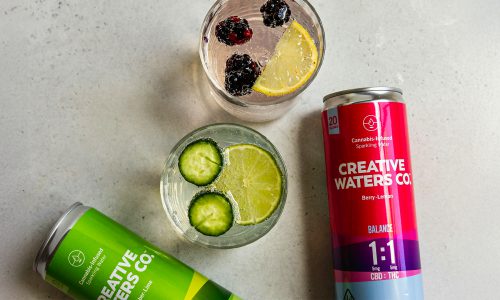Breaking into the hemp-derived THC beverage market presents both enormous opportunities and distinct challenges. With projected U.S. market sales expected to surpass $2 billion by 2030, this industry is ripe for growth, but success depends on more than the product itself. Navigating fragmented regulations, adapting to shifting consumer preferences, and standing out in a competitive landscape require more than just ambition. The real edge comes down to your team.
Behind every great brand is a group of people who drive its success. Building a high-performing team that can manage complex distribution networks, anticipate emerging trends, and fuel sustained innovation is essential. Yet, common hiring missteps often prevent businesses from fully realizing their potential in this high-growth space.
By avoiding these seven mistakes, your brand can overcome hiring pitfalls and lay the foundation for long-term success in the hemp-derived THC beverage industry. Here’s how to get it right.
Mistake 1: Misaligning Talent with Distribution Needs
What to Do:
As a hemp brand looking to establish an intoxicating beverage line, you will quickly discover significant gaps in know-how on your team. Hire sales and distribution managers with experience in the beverage alcohol sector or comparable industries. Look for professionals who’ve successfully navigated distributor negotiations and led product launches into new regional or national markets.
For example, a candidate who helped scale a craft beer brand into multi-state territories will bring a nuanced understanding of supply chain challenges and the ability to connect with key stakeholders.
Why It Matters:
Success in this market depends on more than having a great product—it’s about getting your product on shelves and into consumers’ hands. Industry-savvy sales professionals bring established relationships and a deep familiarity with distribution intricacies, which can accelerate your go-to-market strategy.
Mistake 2: Overlooking Culture Add Rather Than Fit
What to Do:
Focus on hiring team members who align with your mission and can add to your company culture. During interviews, ask candidates to explain their passion for the hemp-derived THC space. For example, someone from a health-oriented lifestyle brand might bring fresh perspectives that enhance your team’s purpose-driven culture.
Why It Matters:
When your team shares the same overarching vision and mission, they’re more likely to innovate, adapt, and thrive even during market disruptions. A workforce that enhances your culture doesn’t just get the job done—they elevate it.
Mistake 3: Neglecting a Broad Range of Perspectives
What to Do:
Make teams of varying thought and lived experiences a priority by tapping into wider talent pools. Partner with organizations, attend industry-specific job fairs, and seek candidates with contrasting professional backgrounds. While cultural alignment matters, the best-performing teams balance alignment with a richness in thought and experiences.
Why It Matters:
Multiple perspectives fuel innovation. Studies show that diverse teams make decisions faster and more effectively, especially in dynamic industries where adaptability is key. By bringing in professionals from different sectors, your brand gains unique viewpoints that can lead to groundbreaking ideas and stronger consumer connections. We have seen that intoxicating hemp beverage brands that have gained early traction often share a common trait. They hired from adjacent industries (think craft beer, kombucha, or functional beverages) and applied that wisdom to a novel category.
Mistake 4: Failing to Keep Pace with Emerging Trends
What to Do:
Recruit leaders immersed in industry trends, such as the wellness-focused “sober curious” movement. Professionals who have worked with functional beverages or non-alcoholic product lines can offer insights into positioning your products for a health-conscious audience.
Why It Matters:
Embraced by Gen Z, the “sober curious” trend isn’t likely to go away. Consumers seek mindful, wellness-driven alternatives; staying ahead of these shifts is crucial for relevance. Team members with experience in spotting trends and steering brands toward them can help you capture a loyal customer base.
Mistake 5: Underestimating Competitive Compensation
What to Do:
Use industry benchmarks and salary data to craft compensation packages that attract top-tier candidates. For instance, if you discover that top sales professionals in the beverage industry are earning a 10% premium, adjust your offers to remain competitive. Cutting corners on talent can ultimately cost you more in the long run. Supplement salaries with performance-driven incentives to ensure your offers stay competitive and aligned with your brand growth goals.
Why It Matters:
The cost of a bad hire extends far beyond finances. It disrupts productivity, slows innovation, and can derail momentum in highly competitive markets. Competitive pay isn’t just an expense—it’s an investment in attracting the right people to fuel your growth.
Mistake 6: Overlooking Data-Driven Hiring Insights
What to Do:
Implement metrics-driven hiring strategies by tracking retention and engagement, and the effectiveness of recruitment channels. For instance, use data from your recent hiring campaigns to determine which channels yield the best long-term employees, then double down on those sources. Partner with a talent management team that combines a people-first mindset with a focus on business-driven results when identifying and securing top professionals who will elevate your brand.
Why It Matters:
Gut instincts alone can lead to hiring pitfalls. Data empowers you to evaluate your recruitment process and pinpoint improvement areas objectively. This ensures a long-term team-building strategy aligned with your business goals.
Mistake 7: Failing to Prioritize Adaptability and Innovation
What to Do:
Look for candidates with experience in fast-paced or early-stage ventures. These dynamic individuals tend to flourish in uncertain environments, viewing challenges as opportunities for innovative solutions. For example, a person who spearheaded operations for a CBD start-up amid regulatory changes could offer exceptional resourcefulness.
Why It Matters:
The hemp-derived THC market is still defining itself. Staying competitive means fostering an adaptable team ready to pivot in response to regulatory or market changes. A history of flexibility and innovation is a must-have trait for success.
The High Stakes of Building the Right Team
The fusion of cannabis and beverages is a rapidly expanding market with immense potential and remarkable growth opportunities. Now is the time to build a people-first hiring strategy—because competitors are securing the talent that will define the next market leaders every day you delay.
At ForceBrands, we specialize in helping high-growth brands build culture-aligned teams that thrive under unique industry pressures. Whether scaling fast or launching a market-first product, our human-centered, data-driven guidance ensures you attract and retain leaders to drive sustainable growth.
Great Teams Build Great Brands
When every hire matters, there’s no room for error. If you’re creating a brand designed to lead in this space, ask yourself: Does your team reflect where the category is headed?
Let’s talk about how to align your talent strategy to meet the moment—and build for what’s next.






